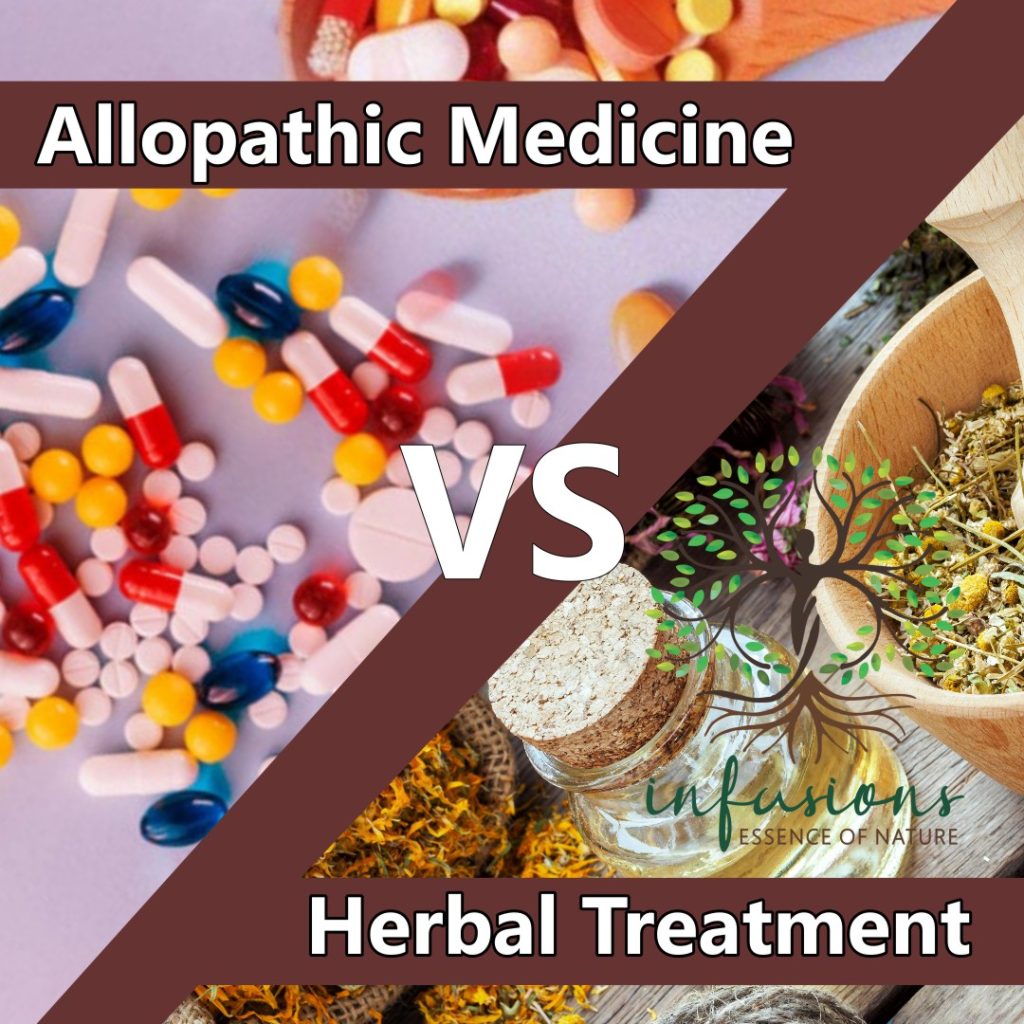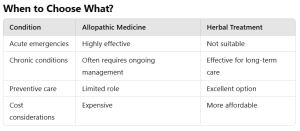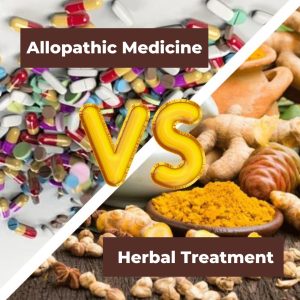
Infusions Pakistan – Bringing Health & Wellness Back Into Everyday Life
Because your health deserves nature’s touch. In today’s fast-paced world,

In the ever-evolving landscape of healthcare, the debate between allopathic medicine and herbal treatment remains a hot topic. Both approaches have their strengths, weaknesses, and unique philosophies. In this article, we delve into a detailed comparison to help you understand their key differences and how they can complement each other.
Understanding the Basics
Scientific Basis and Effectiveness
Allopathic medicine is backed by rigorous scientific research, clinical trials, and peer-reviewed studies. It is particularly effective for acute conditions, emergencies, and life-threatening illnesses due to its targeted approach. On the other hand, herbal treatment often relies on historical usage and traditional knowledge. While some herbs, like turmeric or ginseng, have well-documented benefits, others lack comprehensive scientific validation. Herbal treatments are generally more effective for chronic conditions or as preventive care.
Safety and Side Effects
Safety is a significant consideration when choosing between the two. Allopathic medications are highly regulated, with documented side effects and predictable outcomes. However, long-term use or incorrect dosages can lead to adverse reactions. Herbal treatments are perceived as safer due to their natural origins, but they are not free from risks. Contamination, incorrect dosages, or interactions with other medications can pose health hazards.
Cost and Accessibility
The cost of healthcare often influences the choice of treatment. Allopathic medicine, especially in countries with privatized healthcare systems, can be expensive and requires access to hospitals, pharmacies, and trained professionals. In contrast, herbal treatments are typically more affordable and accessible, especially in rural or resource-limited areas. Many herbal remedies can be prepared or purchased without professional supervision, making them an attractive option for many.
Philosophy and Approach to Illness
The two systems differ fundamentally in their approach to illness. Allopathic medicine is symptom-focused and disease-specific, often employing targeted therapies like antibiotics or vaccines. It takes a mechanistic view of health, aiming to eliminate the immediate problem. Herbal treatment, however, is holistic and preventive. It emphasizes strengthening the body’s natural defenses and restoring balance rather than merely addressing symptoms.
Regulation and Standardization
Allopathic medicines are strictly regulated by governmental bodies such as the FDA (U.S.) or EMA (Europe). They must pass through a series of rigorous trials to ensure safety and efficacy. Herbal treatments, on the other hand, face variable levels of regulation. While some countries impose strict standards, others have minimal oversight, leading to inconsistent quality and lack of standardization.
Integration of Both Systems
Despite their differences, there is growing acceptance of integrating the two systems. Many healthcare providers are exploring ways to combine allopathic and herbal treatments to enhance patient outcomes. For instance, herbal remedies like turmeric and ginger are being studied as complementary therapies for conditions such as arthritis and cancer.

Conclusion
The choice between allopathic medicine and herbal treatment depends on various factors, including the nature of the illness, cost, accessibility, and personal beliefs. While allopathic medicine excels in acute and life-threatening situations, herbal treatment offers a holistic approach to chronic and preventive care. Integrating both systems can provide a balanced path to optimal health. Always consult healthcare professionals before starting any new treatment to ensure safety and effectiveness.


Because your health deserves nature’s touch. In today’s fast-paced world,

Herbal adaptogens stress management offers natural support to calm anxiety,

Green tea weight management harnesses powerful antioxidants (EGCG) to boost